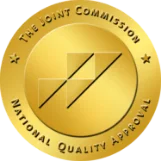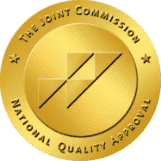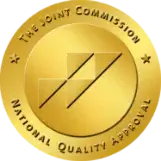STRESS AS A KEY RISK FACTOR IN ADDICTION
THE DIFFERENCE BETWEEN CHRONIC AND NORMAL STRESS
PHYSICAL EFFECTS OF STRESS
Stress Rash
Frequent or chronic stress can cause adverse effects on the skin, such as a stress rash. A stress rash often has an itchy or burning sensation when touched and can be a sign that someone is experiencing high stress levels.
Stress Incontinence
Stress incontinence can be caused by high levels of stress and anxiety. Stress can cause incontinence to occur or worsen already existing issues. Stress incontinence will often cause stress levels to be higher creating further issues.
Stress Hives
Like a stress rash, stress hives are an adverse effect that stress can have on the skin. Stress hives often cause an itching, burning, or tingly sensation when touched and can be very irritating.
Stress Ulcer
A stress ulcer is an ulcerative lesion of the stomach that occurs because of stress. A stress ulcer will often come on suddenly due to high levels of psychological stress.
Stress Headache
A stress headache, also known as a tension headache, can be caused by high amounts of stress. Stress can cause a lot of tension to build up in the body which can cause things like a stress headache to occur.
HOW STRESS LEADS TO ADDICTION
HOW ADDICTION LEADS TO STRESS
THE CONNECTION BETWEEN CHILDHOOD TRAUMA AND STRESS
HOW CHILDHOOD NEGLECT INCREASES THE RISK OF ADDICTION
THE CUMULATIVE DISADVANTAGE
STRESS EFFECTS ON COMMON DRUGS
Amphetamines
Amphetamines can cause someone to experience increased anxiety, paranoia, and psychosis. Stress and amphetamines can lead to an increased risk of experiencing these effects.
Cocaine
Heightened anxiety and stress after cocaine use can lead to an increased chance of relapse. Stress and cocaine combined can increase side effects, such as anxiety and paranoia that may occur with cocaine use.
Alcohol
For someone experiencing stress, alcohol can seem to help decrease stress levels. However, the combination of stress and alcohol can actually increase stress levels over time, especially if alcohol is abused as an attempt to cope with stress or self-medicate. High stress levels after someone gets sober can also lead to a relapse, so it’s important to have a plan in place for managing stress.
PTSD AND SUBSTANCE USE DISORDER
COMMON STRESSORS
- The death of a loved one
- Divorce
- Loss of a job
- Increase in financial obligations
- Getting married Moving to a new home
- Chronic illness or injury
- Emotional problems (depression, anxiety, anger, grief, guilt, low self-esteem)
STRESS MANAGEMENT
HOW TO TREAT STRESS AND ADDICTION
- https://www.sciencedirect.com/science/article/abs/pii/S0006322313001340#:~:text=Stress%20is%20a%20key%20risk,HP%20foods%20and%20allostatic%20load
- http://www.mindgarden.com/documents/PerceivedStressScale.pdf
- https://www.nafc.org/bhealth-blog/is-stress-contributing-to-your-incontinence#:~:text=Anxiety%20and%20incontinence%20interact%20and,risk%20factor%20for%20developing%20incontinence
- https://www.medicalnewstoday.com/articles/317631#Effects-of-stress-on-the-skin
- https://www.medicalnewstoday.com/articles/324990#:~:text=Stress%20ulcers%20come%20on%20suddenly,because%20stress%20increases%20stomach%20acid
- https://www.brainfutures.org/blog/how-stress-can-rewire-your-brain/
- https://www.nctsn.org/what-is-child-trauma/trauma-types/complex-trauma/effects#:~:text=Emotional%20Responses&text=They%20often%20internalize%20and%2For,anger%2C%20sadness%2C%20or%20avoidance
- https://www.psychologytoday.com/us/conditions/amphetamines
- https://www.samhsa.gov/find-help/national-helpline




















